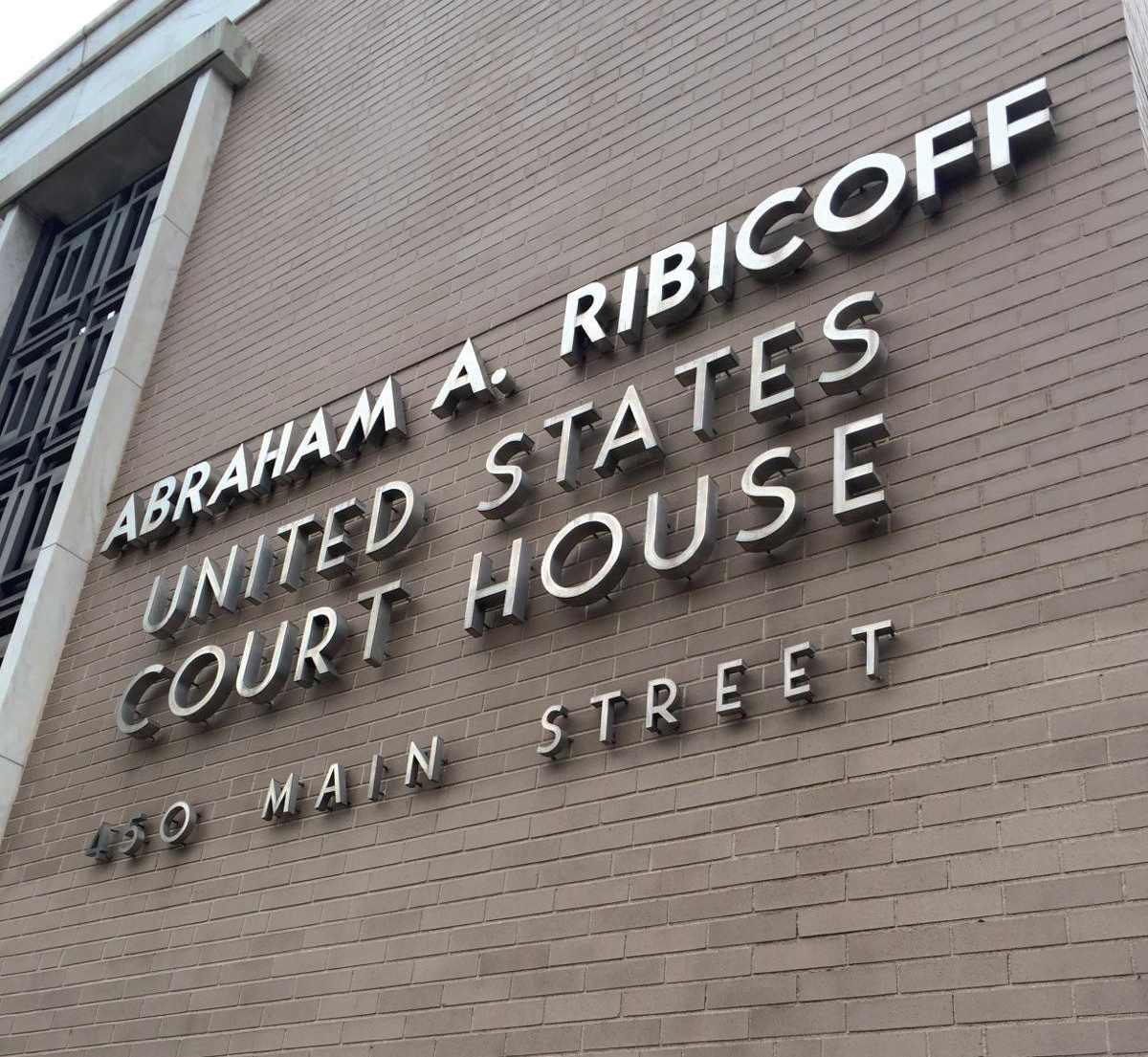
HARTFORD — Monday began the third week of labor hearings over whether Yale graduate students can vote to unionize, with members of the unofficial graduate-student union Local 33 standing as witnesses to defend a department-by-department path toward unionization.
On Tuesday, Yale lawyer Peter Conrad cross-examined Local 33 witness and art history student Emily Sessions GRD ’19 about her teaching responsibilities and grading practices. This round of student testimonies followed two weeks of hearings in which the University has called faculty and administrators as witnesses. Sessions, who gave her initial round of testimony on Monday, was the second witness presented by Local 33 as it seeks authorization from the National Labor Relations Board to hold union elections in ten individual Yale graduate-school departments.
Over the past two weeks, in a small courtroom on the fourth floor of the federal courthouse in Hartford, the NLRB hearing has focused primarily on Local 33’s election strategy, which rests on the claim that each department in the Graduate School of Arts and Sciences represents a cohesive unit with the right to bargain collectively. Yale administrators contend that academic departments are arbitrarily divided and insufficiently tight-knit to be considered separate bargaining units.
“It’s hard to believe, because it’s not the grandest room in the world, but a lot of history is being made here,” Local 33 chair Aaron Greenberg GRD ’18 told the News Tuesday.
The hearing will continue for as long as it takes Local 33 to present its own witnesses.
Local 33, previously the Graduate Employees and Students Organization, was the first group of graduate students to file for union elections after the NLRB ruled in August that graduate students at private universities can be considered employees.
At Tuesday’s hearing, the question of whether individual departments should be classified as coherent units with collective bargaining rights once again took center stage. Yale’s lawyer questioned Sessions about her collaboration with fellow graduate students, asking how often she participated in get-togethers with other Teaching Fellows to grade midterms and finals.
Conrad spent nearly two hours asking about details of Sessions’ past responsibilities as a teaching fellow — the amount of time she spent with undergraduates, the different types of assignments in her discussion sections and even the number of chairs and tables in the room where she held office hours.
As the questioning wound down, Conrad drew comparisons between the skills Sessions brought to her work as a teaching fellow and the skills that students in other departments would employ in similar work. These skills included techniques of arranging artwork and interacting with museum objects.
At the conclusion of Sessions’ testimony, Conrad engaged in a long back-and-forth with Local 33 lawyer Yuval Miller LAW ’05 of the law firm Davis, Cowell & Bowe.
Conrad argued that the skills demanded of teaching fellows by each Yale department are not specialized enough to justify cut-and-dry departmental distinctions. To illustrate his point, Conrad explained that a Yale graduate student studying physics once taught a class in the Department of East Asian Languages and Literatures, a subject far afield from the student’s own department.
“It demonstrates that the skill level in that particular department is not as great as it would need to be to differentiate a department as a separate unit,” Conrad argued Tuesday.
Although Yale argues that the assignment of teaching fellows demonstrates the arbitrariness of departmental units, in an interview with the News last week, Yale Law School professor and labor expert Michael Wishnie ’87 LAW ’93 pointed out that university departments easily pass the NLRB’s threshold for determining whether a bargaining unit shares the “community of interest” that justifies holding a union election.
Once the hearing concludes, the NLRB regional director in Boston, John Walsh, will evaluate testimony from both Local 33 and Yale in order to determine whether the departmental elections can proceed.
Jennifer Dease, the NLRB officer presiding over the hearing, declined to comment on how long the case will continue and when a final decision will be reached.
Greenberg, who has attended every session of the NLRB hearing, told the News he does not plan to testify. Local 33’s first witness — mathematics student Jifeng Shen GRD ’18 — testified Monday, and the union expects to continue presenting witnesses for at least the next few days.
“It feels surreal,” Greenberg said. “Five years ago when I started at Yale, I could not have imagined that I’d end up in Hartford in this room watching the NLRB process play out.”
In fall 2015, 2,858 students were enrolled in the Yale Graduate School of Arts and Sciences.







